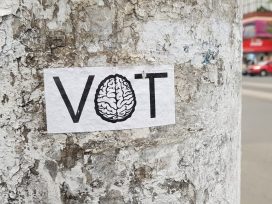
Romania’s anti-vax movement has mutated into a pro-Russian protest bloc. Representing a politically disenchanted online public, the far-right Alliance for the Union of Romanians is increasingly influencing the mainstream agenda.
Wojciech Przybylski takes stock of the threat posed to privacy and human rights in Poland, following the country’s slide into constitutional crisis.
Poland’s democracy is doing well. But there is a problem with the rule of law. The country will be in grave danger if the government introduces the bills that are as yet only hypothetical or planned, including the revision of the constitution.
A law passed in December 2015 limits the powers of the Constitutional Tribunal, obstructing an institution firmly established in the European democratic culture of checks and balances. By doing so, the Law and Justice party (PiS) assumed more power than mandated in the October elections.
PiS did so under false pretences. Irreversible damage was done by president Andrzej Duda when he refused to accept legally elected judges, swore in new judges in the middle of the night, just hours after their nomination by the new PiS-dominated parliament, and left three previous nominations in limbo. His decision was roundly criticized by the legal community in the country for violating the constitution.
Now the ruling party wants to strengthen central powers and undermine privacy and human rights through a series of new regulations that will limit the power of the ombudsman and undercut the independence of the prosecutor general. Laws that give police the right to collect private Internet data without substantial judicial supervision and allow PiS to bypass media regulatory bodies established in the constitution have already passed.
The biggest threat would be a change to the constitution. It can be adopted by parliament under two scenarios: by a trick, in the absence of the opposition since a two-thirds majority is needed with a minimum half of MPs present; or as a consensual decision taken by the government and the opposition.
The first option would indeed put Polish democracy in danger. Law and Justice politicians claim it’s unlikely, but they are already treading down that decidedly Orwellian path.
Published 22 January 2016
Original in English
First published by POLITICO, 13 January 2016
© Wojciech Przybylski / POLITICO / Eurozine
PDF/PRINTSubscribe to know what’s worth thinking about.

Romania’s anti-vax movement has mutated into a pro-Russian protest bloc. Representing a politically disenchanted online public, the far-right Alliance for the Union of Romanians is increasingly influencing the mainstream agenda.

Although it makes for a great dramatic effect, the theories of the sudden death of democracy disregard the gradual erosion and capture of institutions, and the role of the populace – argues political scientist John Keane.